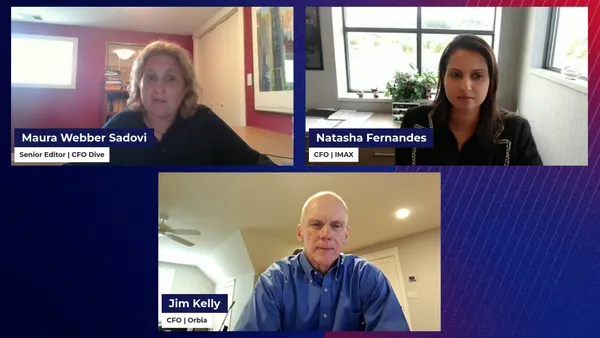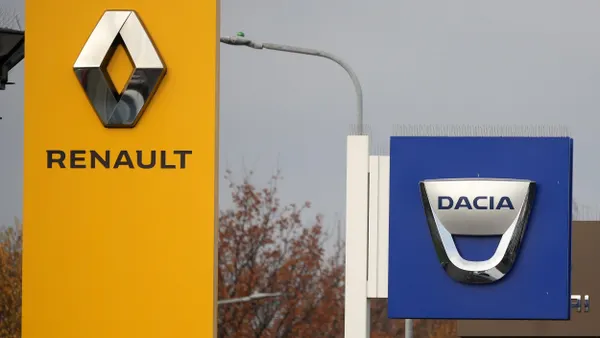To withstand the ups and downs of an increasingly volatile and unpredictable economic environment, maintaining a solid financial footing is a top concern for organizations of all sizes. Businesses in every sector face challenges in managing cash, and at the heart of every stable firm sits working capital management.
For companies that specialize in providing working capital technology to other businesses, there’s an even greater need to control costs and cash. SAP is one such enterprise with expertise in optimizing its use of cash to deliver cutting-edge tools and technologies to customers.
SAP invests heavily in innovation to ensure customers receive access to the most effective solutions. This includes its 2022 acquisition of Taulia, a financial technology business that helps companies access value tied up in their payables, receivables and inventory. Its platform enables customers to execute their working capital strategies, support their suppliers with early payment and contribute to building sustainable supply chains.
How does SAP optimize its use of cash, and what role does Taulia play in the process?
Inside SAP’s procurement organization
SAP deploys its own solutions within the organization. SAP’s procurement function, led by its chief procurement officer, Nikolaus Kirner, has an annual spend of $7 billion USD and 230 full-time employees. It operates as a centralized function, dividing spending into six categories and three regions.
At SAP Spend Connect in Austria this past month, Kirner discussed how this approach allows SAP to take a comprehensive look at procurement. “We have now a central global function, which is good,” Kirner said. “What we are currently doing is looking further into which activities can we stop, delegate or automize.”
This is key to meeting SAP’s commitment to net zero along its value chain by 2030. Reducing Scope 3 emissions is a top priority, and the procurement team is spearheading the introduction of strategies to reduce the firm’s global footprint. Kirner said supplier diversity is also a focus, and SAP plans to increase spend with diverse suppliers to 5% in each relevant category.
Agility as a core competency
External events like the recent pandemic have underscored the importance of agility and adaptability for SAP and its clients. Putting that into practice requires the deployment of agile systems and processes.
This increased agility requires a willingness to continually innovate. For SAP, Kirner said this often means collaborating cross-functionally with other teams to identify opportunities, especially on purpose-driven projects.
The Taulia deployment
Recognizing the need to evolve its approach to cash management, SAP looked for innovative solutions. This led to SAP’s acquisition of Taulia, a working capital management solution, in early 2022. Today, SAP’s procurement team uses Taulia, which provides many benefits from the buyer’s, supplier’s and treasury department’s perspective.
Taulia’s flexibility provides a single, streamlined platform for both accounts payable and accounts receivable. Taulia allows for versatile funding, including onboarding multiple banks and dynamic discounting. The platform’s dedicated portal makes the vendor onboarding process swift and efficient.
Taulia also integrates with SAP Business Network (SBN), which allows for digital alignment of invoices and payment functionality. Its integration with EcoVadis, a provider of business sustainability ratings. Consequently, SAP can incentivize high-scoring companies with advantageous financing options. Including EcoVadis ratings also provides objective data to share with suppliers as the basis for sustainability discussions.
Taulia’s streamlined processes, high degree of automation, flexibility and the fact that it is ERP agnostic made the adoption in the United States a straightforward and largely trouble-free deployment. Kirner said SAP plans to deploy the solution worldwide.
The hallmarks of a successful deployment
SAP’s deployment of Taulia succeeded based on several key factors, Kirner said. Cross-functional collaboration was one of the main success drivers. This included procurement, treasury and Taulia employees.
The team also included business representatives who could help anticipate and manage potential problems for suppliers. Keeping the organization updated on the project was particularly helpful as they could respond quickly to supplier queries or complaints.
The technology itself also helped ensure a successful deployment. Taulia’s artificial intelligence and machine learning capabilities yielded insights early in the deployment, which helped SAP refine its working capital management strategy quickly. It also provided benchmarking data to support data-driven discussions with suppliers.
Businesses can do little to influence prevailing economic conditions, but they can do a great deal to optimize their financial strategies. SAP’s strategic approach to cash management reflects a deep understanding of its customers’ challenges. The acquisition of Taulia is the latest example of its commitment to delivering the best solutions for companies focused on improving their operational efficiency and effectiveness.
Learn how your organization can free working capital to strengthen your financial supply chain and manage risk with working capital management solutions. Visit SAP.com to find out more.










